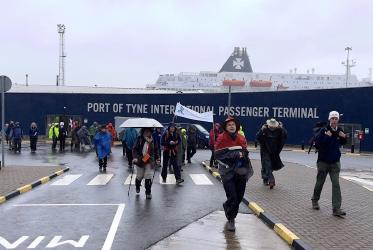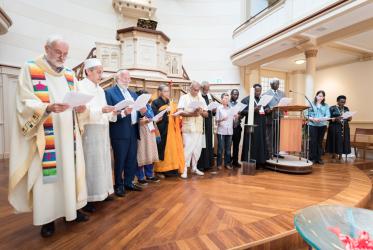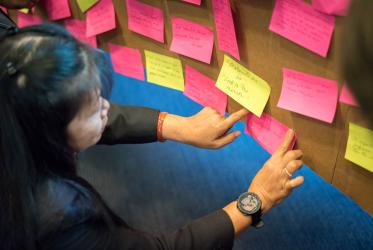Displaying 1 - 20 of 20
All pilgrim routes lead to COP24
11 December 2018
Faith groups at COP24 advocate for just transitions
05 December 2018
What difference does dressing in black make?
02 August 2018
Working toward an AIDS-free generation
26 July 2018
Building bridges of faith in the HIV response
25 July 2018
Building Bridges in the global HIV response
25 July 2018
WCC urges responsibility for and support to the refugees in Europe
04 September 2015
Churches to be more inclusive of persons with disabilities
16 October 2014
Faith communities advocate climate justice at COP19
27 November 2013
Churches calling for a day of fasting for the poor
18 November 2013















